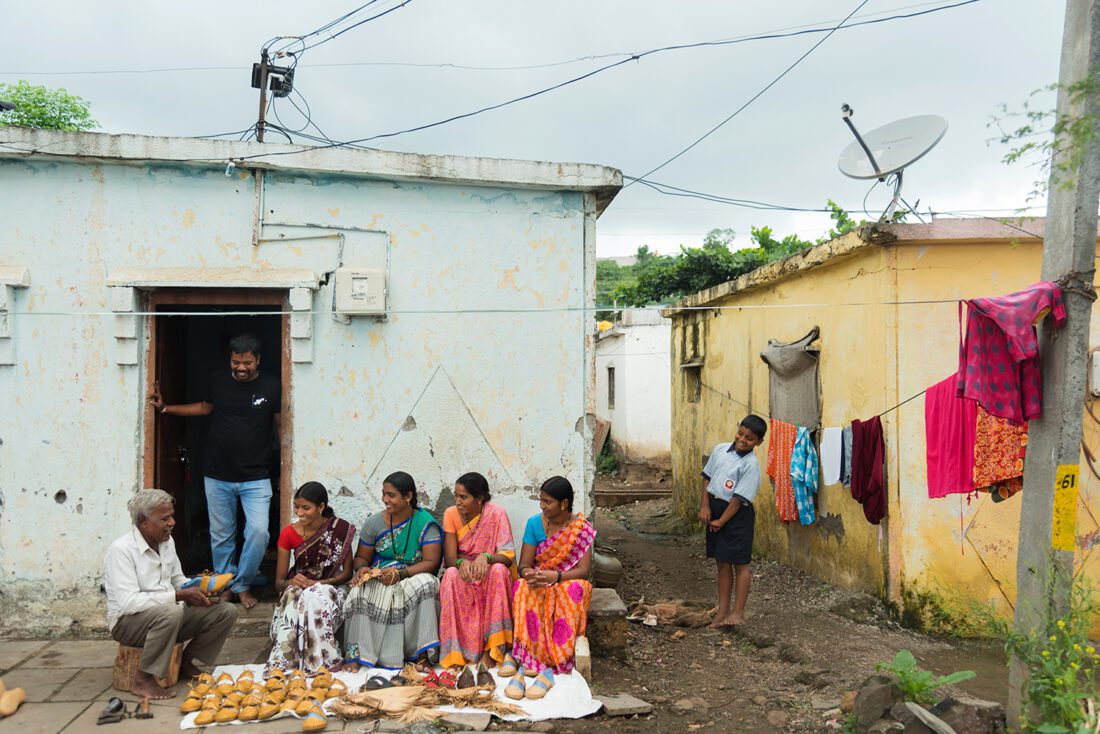
This spring, I embarked on an in-depth study of the captivating realm of cottage industries around the world. I was driven by my desire to understand how cottage industries can be integrated into a country’s economic development. Take the example of India as a developing country. As India shifts from a largely agrarian to an industry-driven economy, it will face formidable challenges. The crux of addressing this transformation lies in understanding and effectively managing the process, attentively considering the heterogeneous necessities and historical legacies of the populace, rather than resorting to mere mechanization of traditional industries.
Surprisingly, about 60% of India’s population relies on agriculture as their primary source of livelihood, particularly in rural enclaves. As the economy develops, India must address the question of what is next for agrarian workers. In this context, cottage industries or handicrafts emerge as indispensable facets, exemplified by the exquisite hand-knotted rugs handcrafted by artisans in Jaipur. These industries serve as crucial pillars, supporting the livelihoods of myriad Indians, with an estimated 200 million individuals (equivalent to the entire population of Brazil!) deriving their sustenance from the intricate tapestry of cottage industries. Consequently, the pressing inquiry emerges: How can these industries be seamlessly assimilated into the future trajectory of economic growth without merely advocating for wholesale mechanization?
Preserving the essence
The beauty of cottage industries lies in their traditional methods. They bring a unique characteristic and value to their products that can’t be replicated through modern means. Imagine a painting made by a machine versus one crafted by a passionate artist. The artist’s creativity and personal touch make it priceless. So, as we look to the future, we must find ways to preserve and uplift these traditional skills and values.
Boosting productivity and modernization
To integrate cottage industries into the speed of the modern economy, we need to focus on enhancing productivity and modernizing certain aspects of these industries. Often, traditional processes lack certain efficiency and modernization elements that can assist in better integration with modern markets. By leveraging technology and innovative processes, we can eliminate unnecessary manual labor and allow artisans to focus on the activities that truly add value. This shift can transform the way work is done, positively impacting everyday tasks and income generation.
Streamlining the value chain
Let’s not forget the importance of the entire value chain in this integration process. Many cottage industries face challenges in terms of inefficient systems that hinder their products from reaching the right places. By creating avenues that deploy modern business practices, we can revolutionize the way these industries operate. Imagine more professional and passionate individuals working to solve these pressing problems. Together, we can unlock the full potential of cottage industries and pave the way for inclusive development.
Embracing change for a better future
In a rapidly changing world, we must avoid creating a social imbalance by merely mechanizing cottage industries. Instead, let’s focus on integrating them into new business models and approaches that consider the preservation of traditional value while embracing productivity enhancements and modernization. By doing so, we can foster a balanced and inclusive economic development in India.
A dynamic journey
Let’s remember that the journey towards progress and development is a dynamic one. It requires us to find ways to embrace change while honoring the rich heritage of our cottage industries. Through innovative thinking, skillful integration, and a passionate commitment to inclusive development, we can build a future where cottage industries thrive, traditional skills are valued, and social imbalance is avoided. Together, let’s pave the way for a brighter and more sustainable world!
Read the full research paper:
For-Profit Social Entrepreneurship for Art and Craft Ecosystems in India